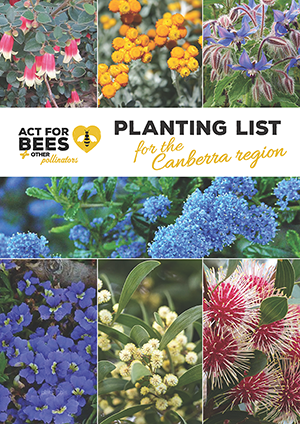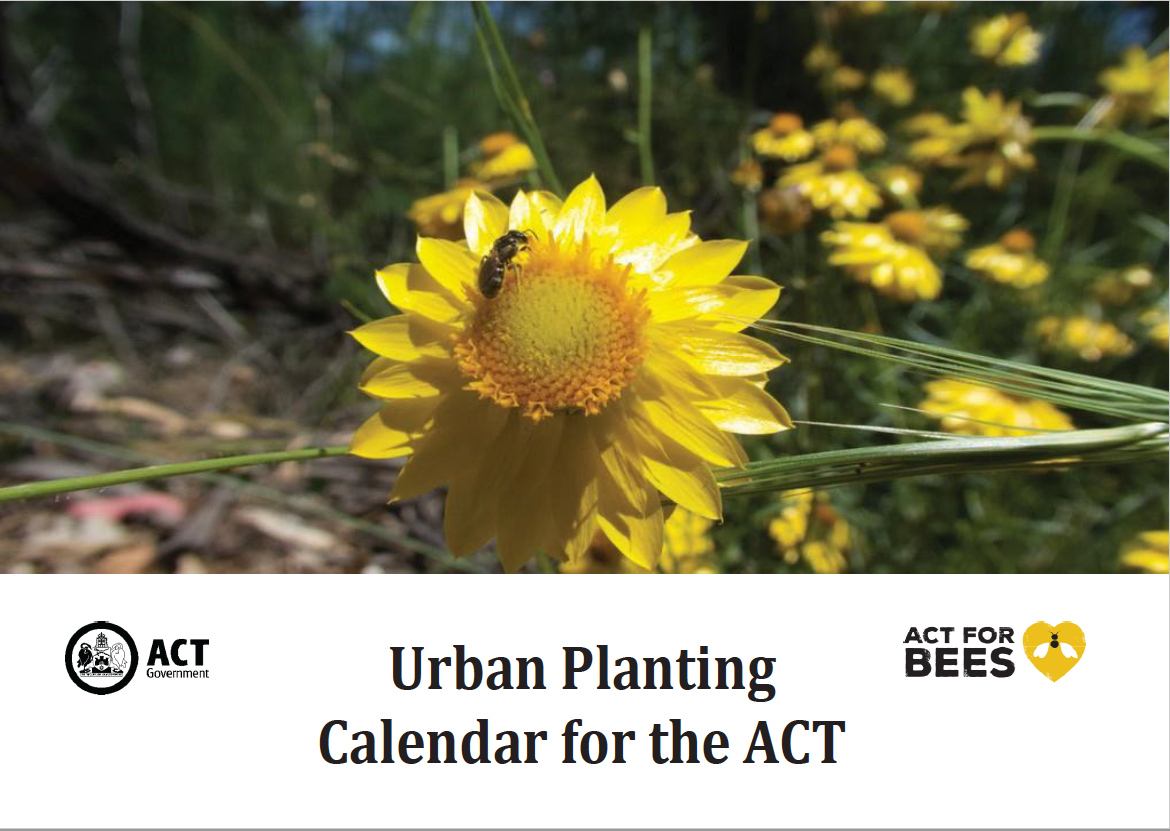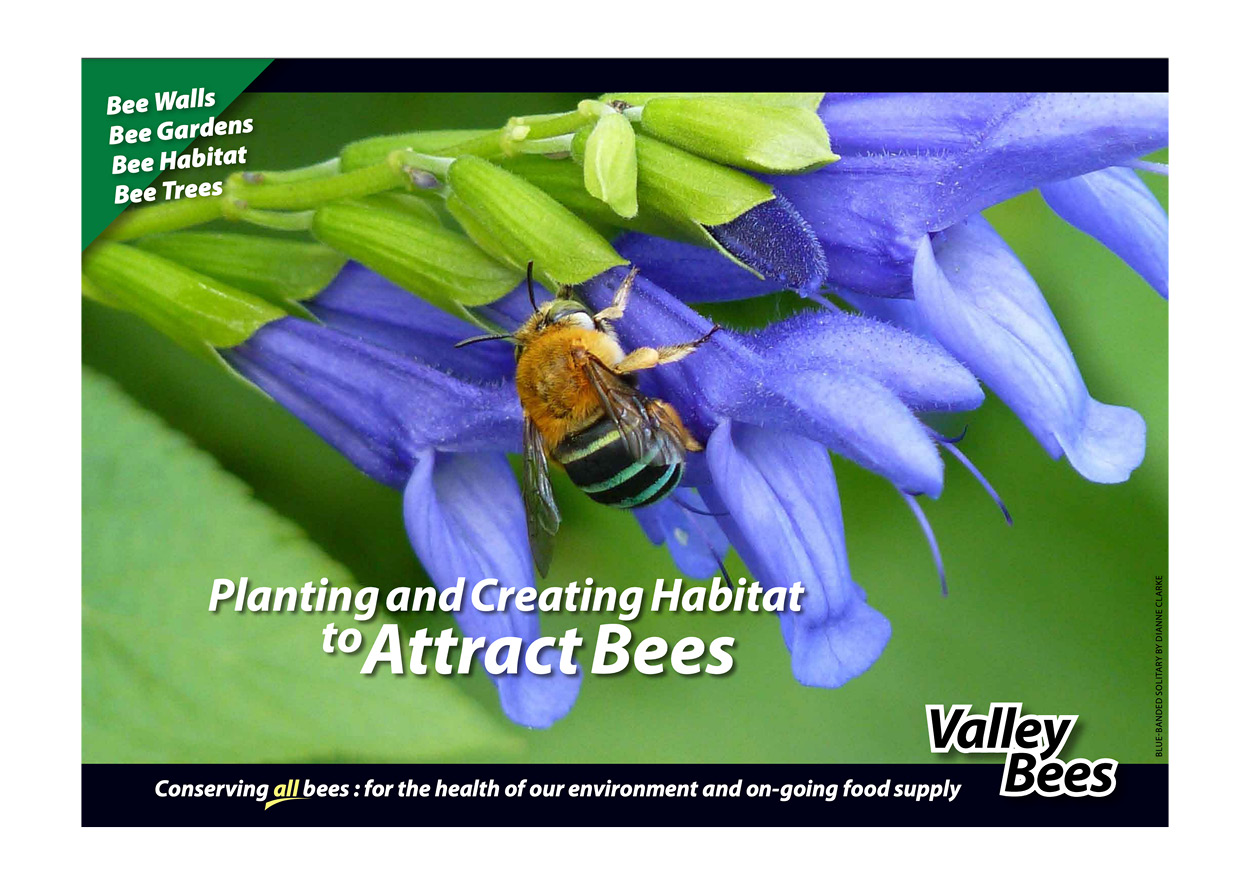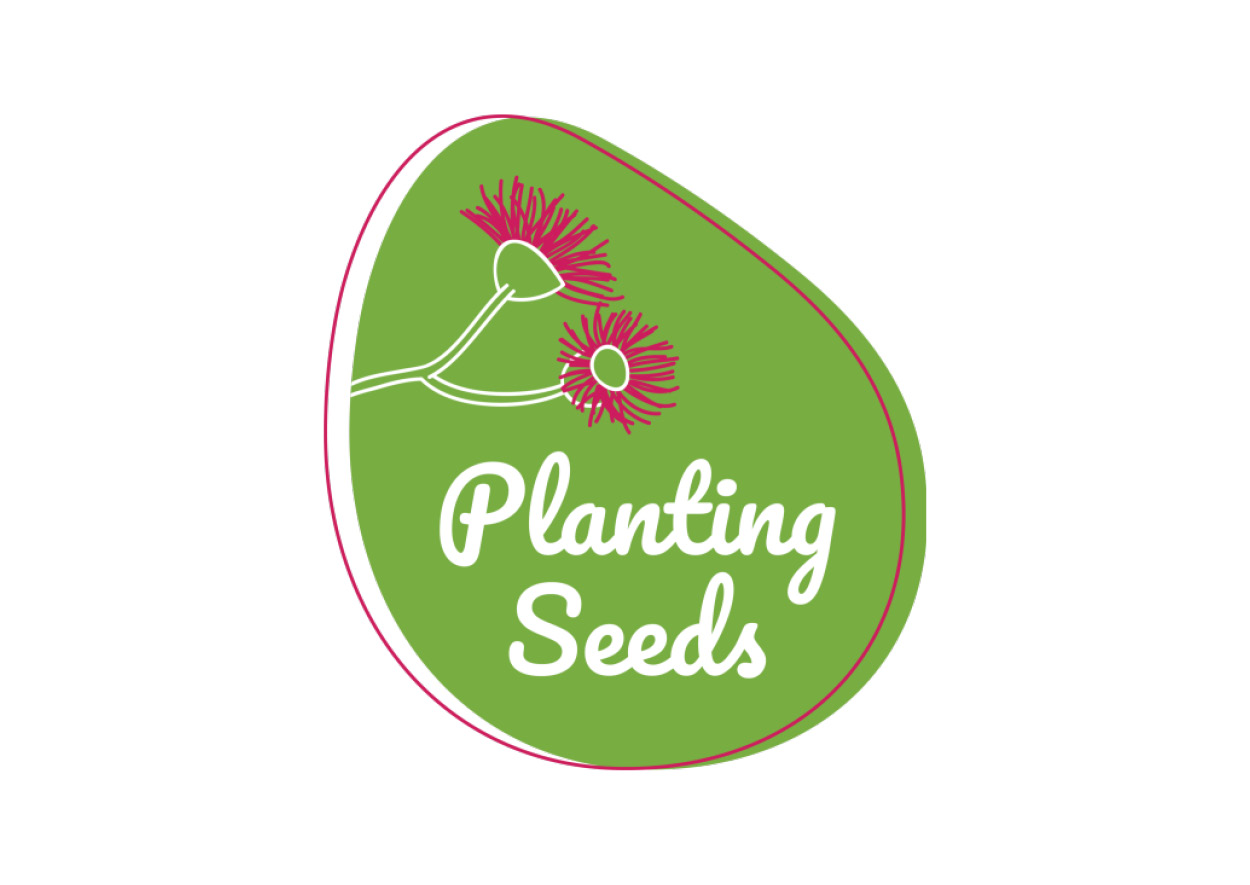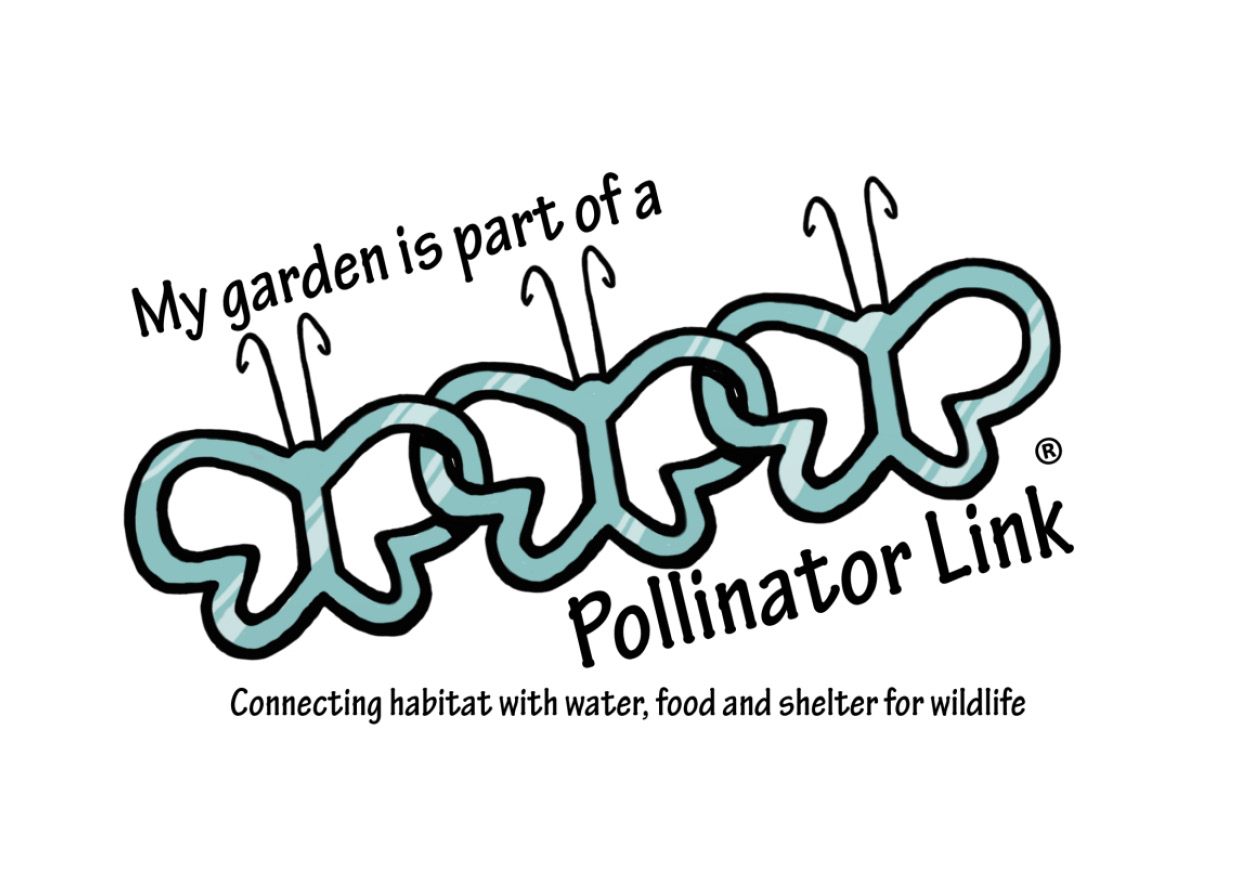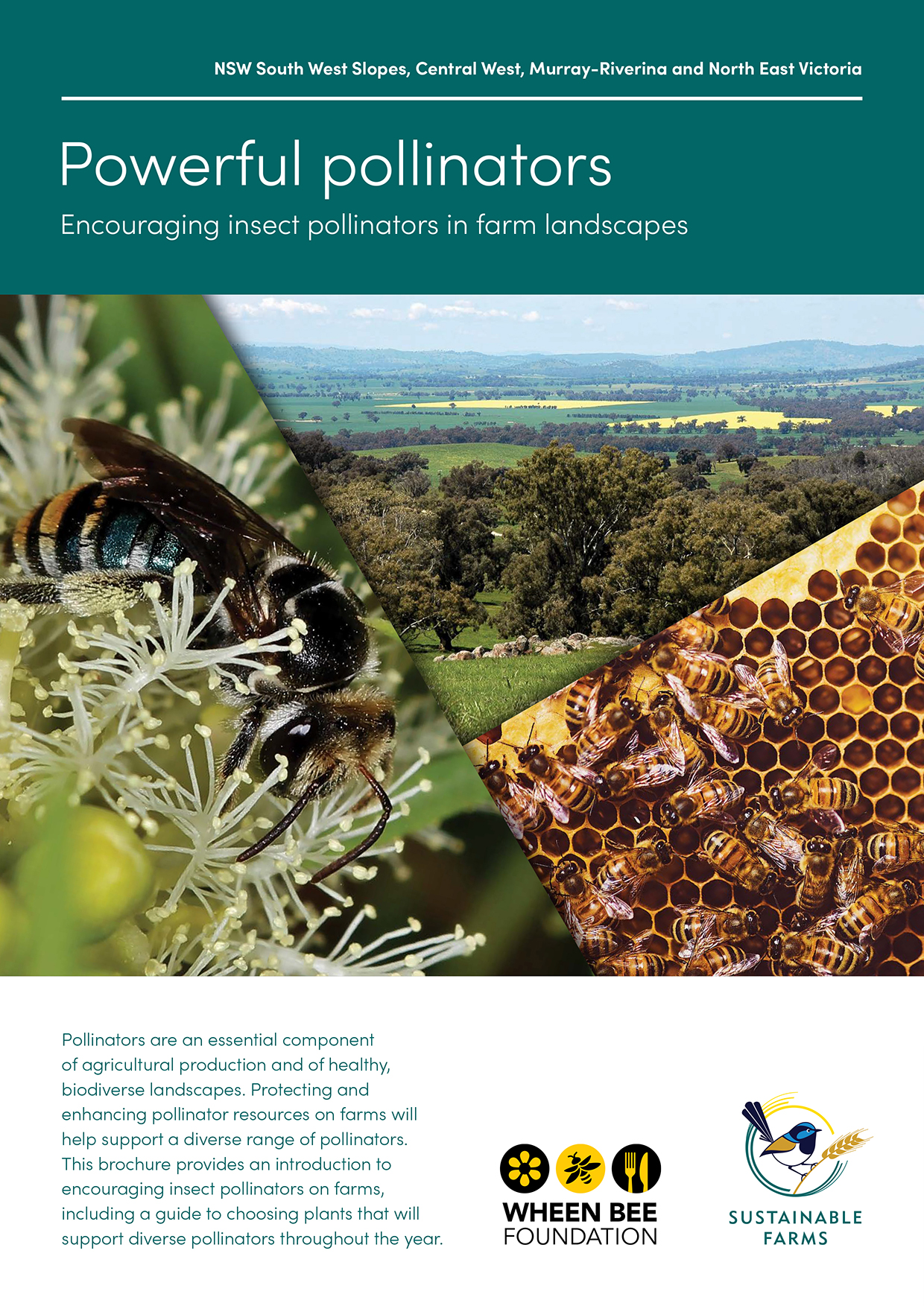Grow
GROW A POLLINATOR-FRIENDLY
GARDEN WITH YEAR-ROUND
FLOWERING PLANTS
ACT for Bees & Other Pollinators
Planting List for the Canberra Region
The Planting List for the Canberra Region has been produced by ACT for Bees and Other Pollinators to support a "Bee and Pollinator Friendly Canberra" and is aimed primarily at home gardeners. It includes information on how to provide pollinator friendly habitats, pest management practices and information on both native and exotic plants which attract and support pollinators. .
Strategic planting to support pollinators
The Urban Planting Calendar - ACT
It's an easy-to-use guide of 32 pages of trees, shrubs, groundcovers and grasses which developers and all ACT Government agencies can use to attract and support pollinators. As noted in the introduction to the publication, pollinators are the foundation of biodiversity. This is a great guide for us all to plan for year-round flowering for pollinators (including grasses for butterflies). Please share it widely in your networks..
It’s an easy-to-use guide of 32 pages of trees, shrubs, groundcovers and grasses which developers and all ACT Govt agencies can use to attract and support pollinators. As noted in the introduction to the publication, pollinators are the foundation of biodiversity. This is a great guide for us all to plan for year-round flowering for pollinators (including grasses for butterflies). Please share it widely in your networks.
Resources produced by Bee & Pollinator
Groups in other regions
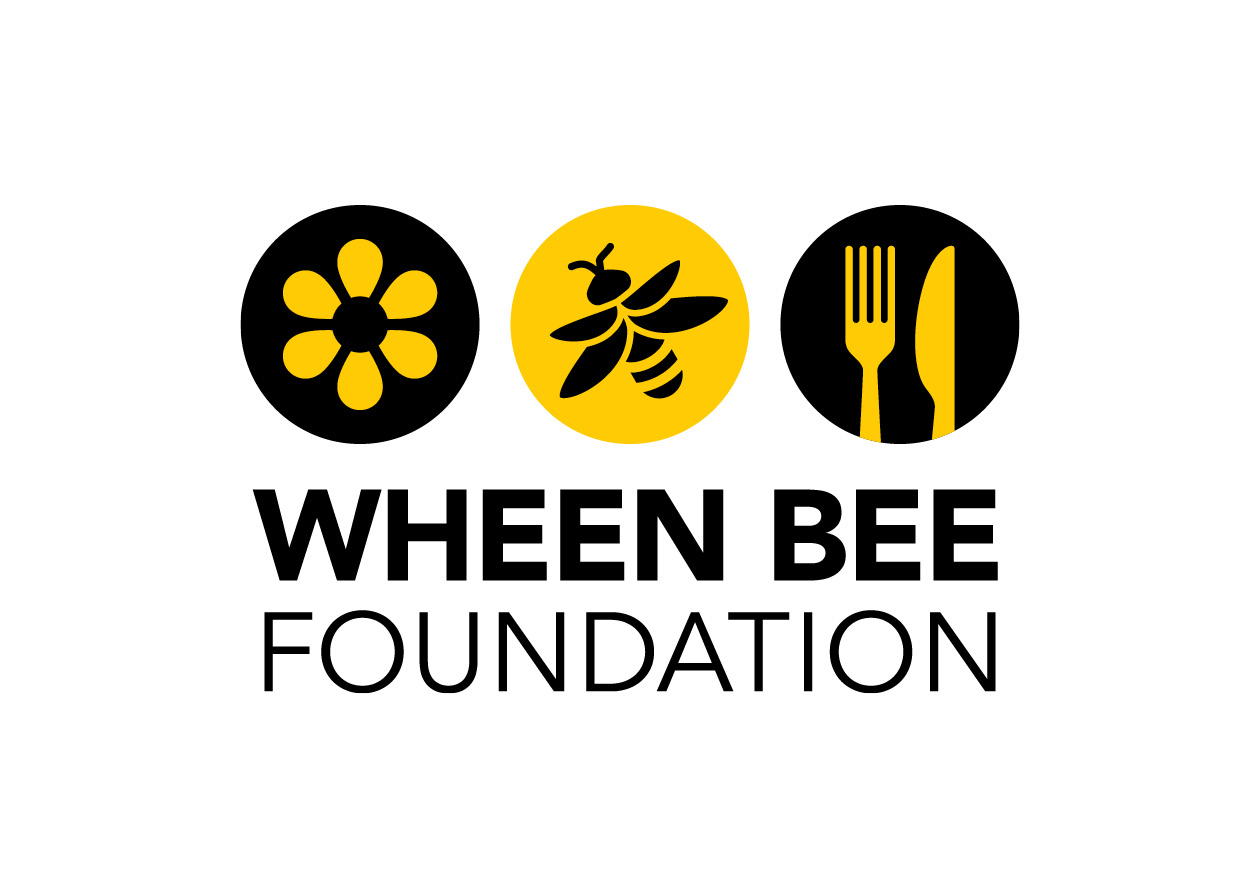
Wheen Bee Foundation
The core objectives of the foundation are to:
1. Fund Research & Development.
2. Raise Awareness of the importance of bees for food security and ecosystem health.
3. Connect People integral to the cause.
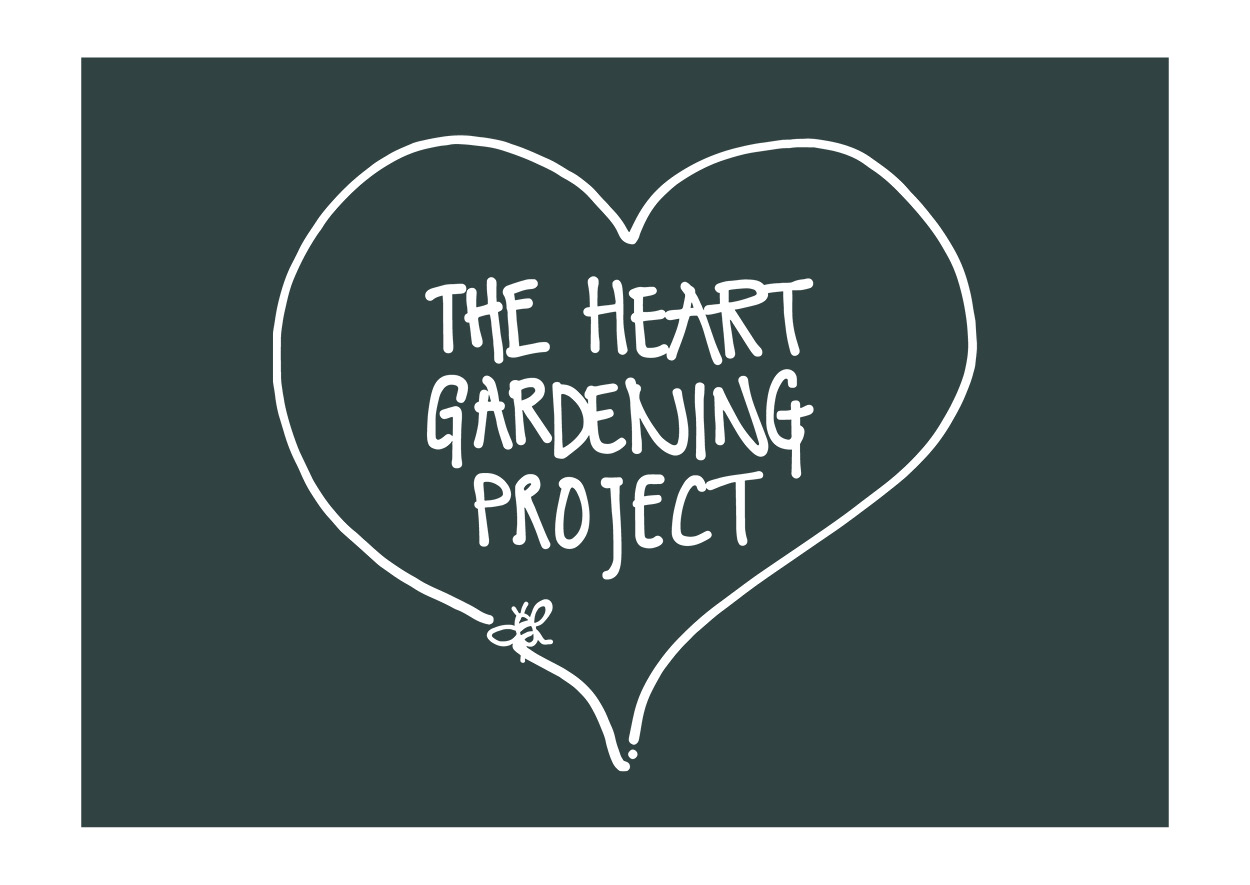
The Heart Gardening Project - Melbourne VIC
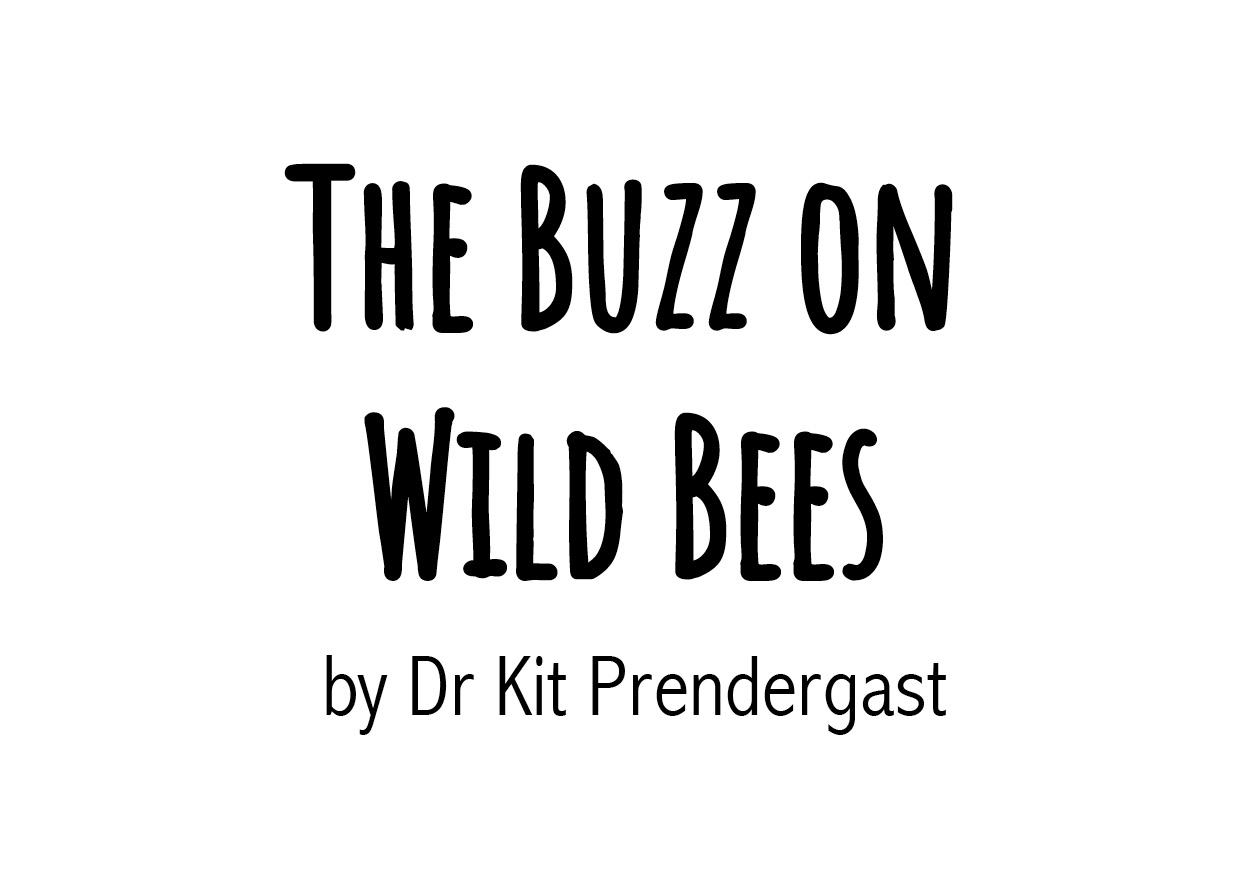
Learn to Build a Bee Hotel
Powerful Pollinators
Planting guides for Eastern and Western Australia
Powerful Pollinators is a program designed to increase the prevalence, health and diversity of pollinators in the landscape. The Program encourages the strategic planting of ‘trees for bees’ and other pollinators and provides Pollinator Planting Guides developed by experienced botanists and field ecologists for use by landholders.
Provide an ideal pollinator-friendly habitat, including:

Pest Management & Pollinators
The world’s honey bees have been in steep decline for over a decade, with extraordinary losses in population witnessed across the globe resulting in a 30 percent loss of some honey bee colonies every year. Beekeepers across the U.S. and Europe have reported these mass bee deaths, known as ‘colony collapse’ since 2006 and in the absence of any singular explanation, the disturbing decline was dubbed ‘Colony Collapse Disorder‘ or CCD.
What is the problem with using pesticides?
Insect decline in the Anthropocene: Death by a thousand cuts
Organic Food Suppliers
Organic Food is grown without the use of synthetic pesticides, herbicides, fungicides and fertilisers. Organic farming practices tends to take care of biodiversity by increasing soil fertility, conserve water, reduce soil erosion and reduce pollution. Where ever possible buy locally produced organic food from your local supplier of Farmers Market.
Organic seeds, seedlings and garden products suppliers Australia
Organic Food is grown without the use of synthetic pesticides, herbicides, fungicides and fertilisers. Organic farming practices tends to take care of biodiversity by increasing soil fertility, conserve water, reduce soil erosion and reduce pollution. Where ever possible buy locally produced organic food from your local supplier of Farmers Market.

